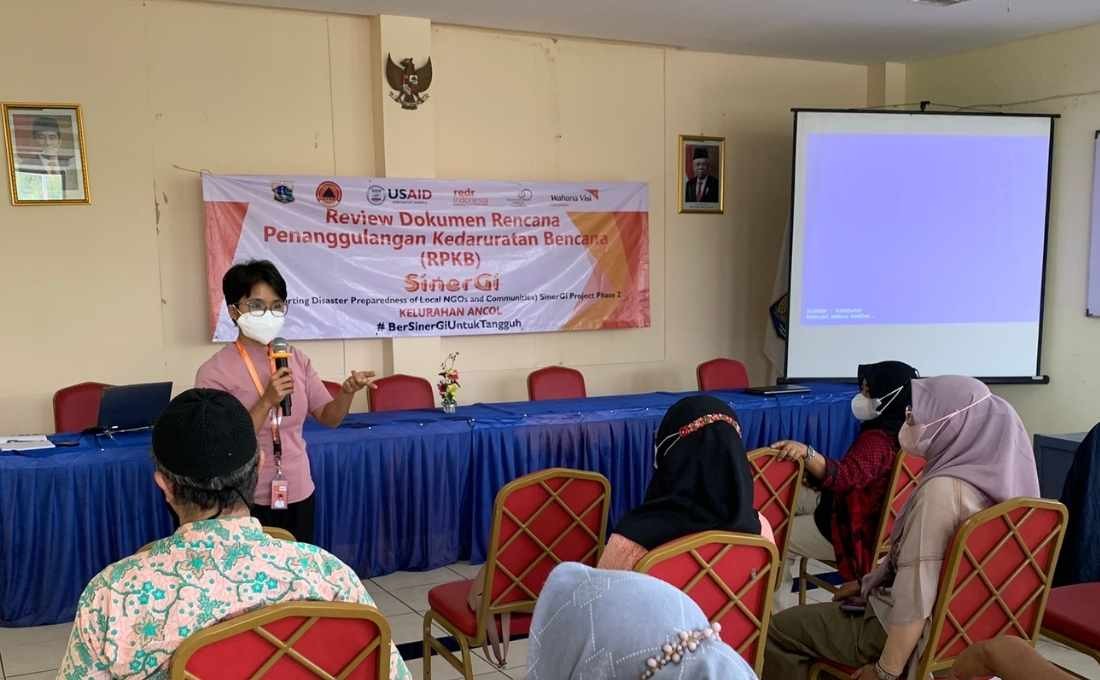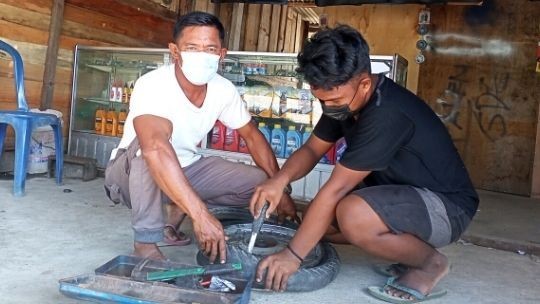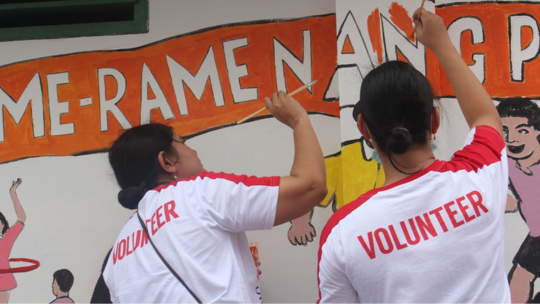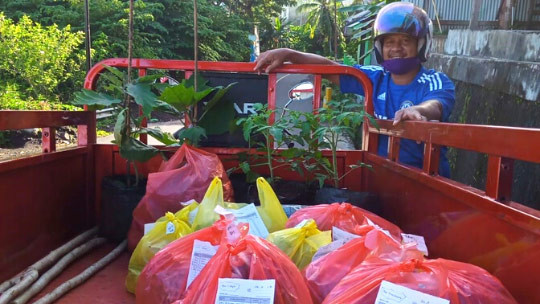Inclusive Disaster Emergency Management Plan Document for Participatory Disaster Management

The phenomenon of the Covid-19 pandemic that has hit the world including Indonesia since the beginning of 2020 has left lessons for the communities in Ancol Subdistrict in North Jakarta. The Coronavirus has caused a new disaster that practically makes all citizens of the world including the residents of Ancol Village not have experience in handling it, even though the residents of Ancol Subdistrict already have a Disaster Emergency Management Plan (DEMP) Document in 2019. The handling of the pandemic is fully carried out by following the instructions from the government.
For better disaster risk management in the future, it is necessary to periodically revise the RPKB Document, so that the document is always relevant as a guide in disaster prevention and management.
The Ancol Subdistrict Government together with institutions as representatives of the citizens, collaborated with the SinerGi Project of Wahana Visi Indonesia (WVI), supported by USAID, to revise the DEMP Document. The revision of this document is carried out by incorporating the principles of participatory and inclusiveness in every cycle of disaster prevention and management, as well as completing the information on handling the Covid-19 pandemic that is relevant to society today and in the future.
Sujarwo (47), Coordinator for Handling Public Facilities and Infrastructure (PPSU) of Ancol Village, has contributed to the preparation of the 2019 Disaster Management Plan document until now. He participated in providing advice and information for the improvement and completeness of the RPKB Document.
“I have felt that there has been an improvement in disaster management in Ancol Village since Wahana Visi facilitated us in compiling the DEMP document two years ago, especially in dealing with floods and the 2021 pandemic. All institutions, governments, and the business world are willing to get involved in disaster management. Not only that, even all community groups build better communication because more people understand that disaster management is a shared task and everyone can do something when there is a disaster," he said.
Meanwhile, Surifah as a member of the PKK and Dasawisma in Ancol Village revealed the changes she felt in the 3-day process of revising the PB document. She said, "With the document review that we did together, I came to understand the importance of determining who does what during a disaster, besides paying attention to operating standards that ensure all handling is carried out safely and easily accessible to anyone in the field, especially for the disabled group, Mrs. pregnant, elderly and children. This document exists and is becoming more and more complete thanks to the support of SinerGi from Wahana Visi Indonesia.”
After successfully revising the DEMP Document, all participants present were committed to conducting socialization at the family and institutional levels and seeking regular simulations by referring to the latest documents so that communities are more resilient in preventing and dealing with disasters.
Written by: Dina Mariana Lumban Tobing, Project Officer of Synergy Project Wahana Visi Indonesia



